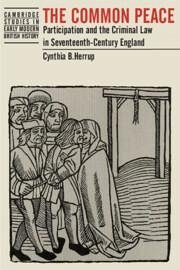
The Rise and Fall of Cannabis Prohibition in Wisconsin

PAYBACK Punkte
13 °P sammeln!
The Rise and Fall of Cannabis Prohibition in Wisconsin is "one part history book, one part memoir, and one part encyclopedia." The Rise and Fall of Cannabis Prohibition in Wisconsin, the first book of its kind focusing on the state of Wisconsin, begins with the story of how the state came to pass its first law prohibiting marijuana in 1935, the legislation that further criminalized cannabis through the next several decades, and the efforts to undo or reduce the penalties of that prohibition beginning in the late 1960s to date. The book also examines stories about the enforcement of cannabis pr...
The Rise and Fall of Cannabis Prohibition in Wisconsin is "one part history book, one part memoir, and one part encyclopedia." The Rise and Fall of Cannabis Prohibition in Wisconsin, the first book of its kind focusing on the state of Wisconsin, begins with the story of how the state came to pass its first law prohibiting marijuana in 1935, the legislation that further criminalized cannabis through the next several decades, and the efforts to undo or reduce the penalties of that prohibition beginning in the late 1960s to date. The book also examines stories about the enforcement of cannabis prohibition and those caught up in it and how these cases were resolved. This title is a must read for those who want a resource offering a comprehensive look at the cannabis issue in Wisconsin. Using a variety of sources including news articles, copies of legislation, legislative journals, drafting records and other data, state reports, arrest statistics, etc. The Rise and Fall of Cannabis Prohibition in Wisconsin brings together a multitude of sources and information never before compiled into a single book. With public support for medical cannabis and adult use cannabis legalization at record levels in Wisconsin, The Rise and Fall of Cannabis Prohibition in Wisconsin is the ultimate resource for understanding this issue and how we got to where it stands at today. The Rise and Fall of Cannabis Prohibition in Wisconsin begins with an introduction and prologue with the main text of the book split into two parts. The first section covers the years 1934-1994 and consists of 32 chapters ranging in length from a page or two to more than a dozen pages. These chapters relate how and why lawmakers first made cannabis illegal, tell the stories of some of the people targeted, and offer details of efforts to decriminalize and legalize cannabis. The chapters in Part Two, covering 1995 to late 2019, each cover a year and are arranged in a timeline by date, following the ever-increasing pace of efforts to ease cannabis prohibition in Wisconsin. While the 1995 chapter only contains one entry, there are more each year as efforts to reform cannabis laws slowly snowball over the years. The 2018 chapter closely follows the county and city advisory referendums that swept to victory in 16 counties and two cities in Nov. 2018 that finally elevated the issue politically to its highest level yet. The 2019 chapter lays out how the advisory referendums and the new governor and attorney general made cannabis legalization one of the state's biggest issues and the changes happening because of these factors. An epilogue looks at the future of the cannabis issue and the prospects for statewide legalization.













